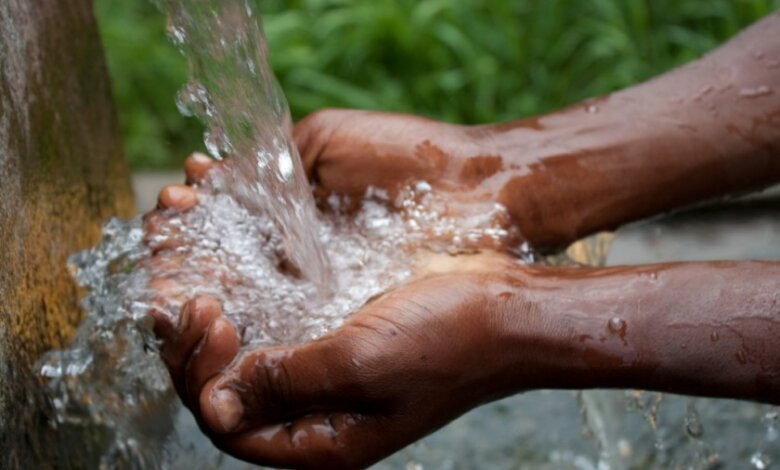Studies Debunk the Myth that Africa is Running Out of Water

Most African countries, according to WaterAid and the British Geological Survey, could endure a drought for at least five years, and some for more than 50 years, on their groundwater reserves.
Their research Groundwater: the world’s neglected defence against climate change, revealed that every country in Sub-Saharan Africa could supply 130 litres of drinking water per capita from groundwater without using more than a quarter of what can be regenerated, with most using just about 10%
The chief executive of WaterAid UK, the nonprofit behind one of the reports, Tim Wainwright, said:
“Our findings debunk the myth that Africa is running out of water. But the tragedy is that millions of people on the continent still do not have enough clean water to drink. There are vast reserves of water right under people’s feet, many of which are replenished every year by rainfall and other surface water, but they can’t access it because services are chronically underfunded.”
Researchers say that if groundwater resources in Sub-Saharan Africa can be adequately managed, they can alter agriculture in the region and supply people with enough safe water for drinking and hygiene needs.
Groundwater, which is located underground in aquifers, rocks, and soils, makes up nearly 99 percent of all liquid freshwater on the planet and is abundant in much of Africa, but it has remained untapped or poorly managed due to a lack of investment, according to two major studies.
Read Also: Francis Kéré, first African to win Pritzker Prize, Architecture’s Nobel
The reserves might be utilized for irrigation and to provide clean and safe water, but there’s a risk that if they’re exploited irresponsibly, they’ll be depleted or polluted quickly.
The United Nations’ annual World Water Development Report this year focused on groundwater. The report stated that despite the fact that groundwater is abundant in the region, just 3% of farmland in Sub-Saharan Africa was equipped for irrigation, and only 5% of that area used.
According to Richard Connor, main author and editor of the UN report for UNESCO, groundwater is not being used in Africa due to a lack of investment in equipment and infrastructure, as well as a lack of institutions, qualified personnel, and awareness of the resource. He believes that developing skills in mapping and managing groundwater resources is critical.
However, over-exploitation of groundwater has its own set of risks. Some aquifers are readily recharged when rain occurs, but others have been undisturbed for millennia, if not millions, of years.
This “fossil water” is now accessible via contemporary pumping systems and has been successfully exploited as such, for example, to construct cities in the Middle East desert. This can’t last because water can’t be replaced on human timescales.
Other examples of over-exploitation, according to Connor, may be seen in south Asia, sections of the United States, and Australia, where groundwater has been utilized unsustainably.
Another example is in India, where more than 30 years of government incentives to farmers have been used to extract water without the development of accompanying governance structures to ensure that the water was shared equitably and managed for the long-term. It resulted in widespread overuse, with groundwater depleted beyond its natural ability to recharge.
Read Also: Mali Digitize Timbuktu’s Ancient Manuscripts
Farmers are now competing for a diminishing resource, with water levels that are decreasing and becoming increasingly polluted. Local people must be given rights and responsibilities over their resources, as well as the knowledge and skills to extract and manage groundwater economically and sustainably, according to Connor.
“It costs money to do it properly, and it can cost more money to manage sustainably than to mis-manage, in the short term. But the returns from good management are huge. Proper management will allow the resource to be available for generations,” he said.
The risk involved for African countries is that other countries would rush in to take advantage of this first. A separate study by the Oakland Institute found that large agricultural commodity firms from throughout the world perceive Africa as a key opportunity.
Researchers looked at 15 large-scale agricultural projects in 11 African countries where huge corporations were given land and water extraction rights. Local residents, rather than benefiting from growth, were often disadvantaged, according to the research.
“When irrigation infrastructure is established, it benefits private firms for large-scale agriculture, often for export crops, instead of local farmers and communities. People living in arid and semi-arid lands are severely impacted by large-scale irrigation projects that reduce available pastures, and prevent flood recession agriculture, while fences and canals cut through traditional routes of people and livestock.”
Source: The Guardian
Abeeb Lekan Sodiq is a Managing Editor & Writer at theafricandream.net. He’s as well a Graphics Designer and also known as Arakunrin Lekan.





